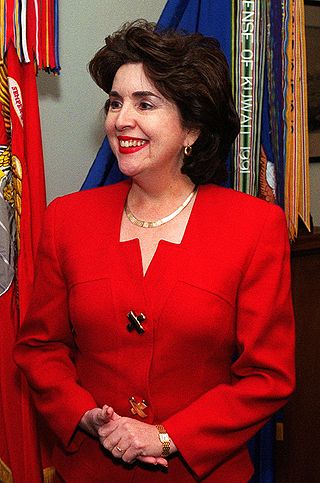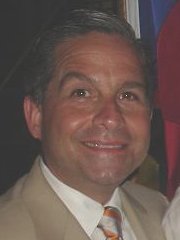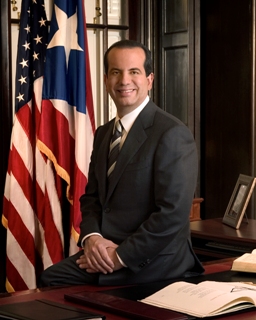Related Research Articles

The politics of Puerto Rico take place in the framework of a democratic republic form of government that is under the jurisdiction and sovereignty of the United States Congress as an organized unincorporated territory. Since the 1898 invasion of Puerto Rico by the United States during the Spanish–American War, politics in Puerto Rico have been significantly shaped by its status as territory of the United States. The nature of Puerto Rico's political relationship with the United States is the subject of ongoing debate in Puerto Rico, in the United States, the United Nations and the international community, with all major political parties in the archipelago calling it a colonial relationship.

Sila María Calderón Serra is a Puerto Rican politician, businesswoman, and philanthropist who was the governor of Puerto Rico from 2001 to 2005, becoming the first female to be elected and serve as governor in Puerto Rican history. Prior to her term as governor, Calderón held various positions in the government of Puerto Rico, including the 12th Secretary of State of Puerto Rico from 1988 to 1989, and Chief of Staff to Governor Rafael Hernández Colón. She was also mayor of San Juan, the capital of Puerto Rico, from 1997 to 2001.

Pedro Juan Rosselló González is a Puerto Rican physician and politician who served as the governor of Puerto Rico from 1993 to 2001. He was President of the New Progressive Party from 1991 to 1999 and 2003 to 2008, and served as Senator for the District of Arecibo from 2005 to 2008. His son, Ricardo, was also Governor of Puerto Rico from 2017 to 2019.
The New Progressive Party is a political party in Puerto Rico that advocates for statehood. The PNP is one of the two major parties in Puerto Rico with significant political strength and currently holds the seat of the governor.

General elections were held in Puerto Rico on Tuesday, November 2, 2004. After a count by the State Commission of Elections, the winner was inaugurated to a four-year term as Governor of Puerto Rico on January 2, 2005.

Luis Guillermo Fortuño Burset is a Puerto Rican politician who served as the governor of Puerto Rico, an unincorporated territory of the United States, from 2009 to 2013.

Kenneth Davison McClintock-Hernández is a politician who served as the twenty-second Secretary of State of Puerto Rico, one of the four longest serving in that post. McClintock served as co-chair of Hillary Clinton’s National Hispanic Leadership Council in 2008, he co-chaired her successful Puerto Rico primary campaign that year and served as the Thirteenth President of the Senate of Puerto Rico until December 31, 2008. He chaired Luis Fortuño’s Incoming Committee on Government Transition in 2008 and the Outgoing Committee on Government Transition in 2012, the first Puerto Rican to serve in both capacities. He was sworn into office as secretary of state on January 2, 2009, by Chief Justice Federico Hernández Denton, fulfilling the role of lieutenant governor in the islands. He was appointed by Governor Pedro Pierluisi as a member of the Civil Rights Commission on February 8, 2024, a nomination pending Senate confirmation.

Jorge Adolfo de Castro-Font is a former Puerto Rican senator and former member of the House of Representatives. Originally, he was a member of the Popular Democratic Party (PPD) but became an independent representative in 2001 after inner disputes with his party. In 2002, he became a member of the New Progressive Party (PNP) and was elected Senator in 2004 and 2008, despite inner struggles within the party and legal issues.
Norma E. Burgos Andújar is a Puerto Rican politician who served as the Lieutenant Governor and the Secretary of State under Governor Pedro Rosselló from 1995 to 1999. She also served as a member of the Senate of Puerto Rico from 2000 to 2012.

General elections were held in Puerto Rico on Tuesday, November 4, 2008, to elect the officials of the government that would serve for the next four years, most notably the Governor of Puerto Rico.

Francisco J. Domenech is a former director of the Office of Legislative Services of Puerto Rico (2005–2008), a lawyer, and a professional political campaign manager. Domenech spent part of his childhood and adolescent years, in Ocala, Florida, having attended Blessed Trinity Catholic School, and Forest High School.

Eduardo Bhatia Gautier is a Puerto Rican attorney and politician. Bhatia is a former 15th President of the Senate of Puerto Rico and executive director of the Puerto Rico Federal Affairs Administration.

The 2008 Puerto Rico Democratic presidential primary took place on June 1, 2008. It was an open primary. Puerto Rico initially planned to hold caucuses, as was done in 2000 and 2004, on June 7, 2008. In December 2007, an error in the plan was discovered; the caucus date should have read June 1, 2008. Puerto Rico also decided to conduct a primary, rather than caucuses. Puerto Rico sent 55 pledged delegates to the 2008 Democratic National Convention. These delegates were allotted on a proportional basis. The territory's delegation also included eight unpledged "superdelegates". Puerto Rico also selected one unpledged add-on delegate. Selection of the unpledged add-on delegate occurred at the Assembly of the Democratic Party of the Commonwealth of Puerto Rico on June 21, 2008, in San Juan. Polls were open from 8:00 am to 3:00 pm, prevailing local time, Atlantic Standard Time (AST). Hillary Clinton won the primary.

Aníbal Salvador Acevedo Vilá is a Puerto Rican politician and lawyer who served as the governor of Puerto Rico from 2005 to 2009.

The Popular Democratic Party is a political party in Puerto Rico that advocates to continue as a Commonwealth of the United States with self-governance. The party was founded in 1938 by dissidents from the Puerto Rican Liberal Party and the Unionist Party and originally promoted policies on the centre-left. In recent years, however, its leaders have described the party as centrist.

The Young Democrats of America Puerto Rico Chapter is a non-profit political corporation organized pursuant to General Corporate Law of Puerto Rico and duly registered in the Department of State of Puerto Rico.

The 2008 New Progressive Party primaries were the primary elections by which voters of the New Progressive Party (PNP) chose its nominees for various political offices of Puerto Rico, namely the position of governor, for the 2008 general elections. Resident Commissioner Luis Fortuño was selected as the nominee at the primary elections held on March 9, 2008. He would go on to win the 2008 general election as well.
Jorge Colberg Toro is a Puerto Rican politician. He served as a member of the Puerto Rico House of Representatives from 2003 to 2013. He also was Secretary for Public Affairs for Governors Sila M. Calderon and Alejandro García Padilla and Secretary General of the Popular Democratic Party (PDP). He is a government and public Policy College Professor at the Interamerican University of Puerto Rico, a political, legislative and government consultant, speechwriter and a television and radio political analyst.

José La Luz is a labor activist and intellectual who organizes, promotes and advocates for worker rights in Puerto Rico and the United States. He was the architect of the grassroots campaign that resulted in the 1998 passage of Puerto Rico's Law 45, which granted bargaining rights and allowed for the unionization of over 120,000 public employees. La Luz was the Associate Director of the Leadership Academy for the American Federation of State, County and Municipal Employees until his retirement in 2014. La Luz also served on the National Political Committee of the Democratic Socialists of America

The 2016 Puerto Rico Democratic presidential primary took place on June 5 in the U.S. territory of Puerto Rico as one of the Democratic Party's primaries ahead of the 2016 presidential election.
References
- ↑ source:"https://newjerseymonitor.com/wp-content/uploads/2025/01/1-2-24-Menendez-sentencing-submission.pdf"
- ↑ "LIBRO te quiero Puerto Rico, Primaria Presidencial Democrata 2008: FREE SHIPPING @ MusicaBoricua". Archived from the original on 2011-09-28. Retrieved 2011-10-13.